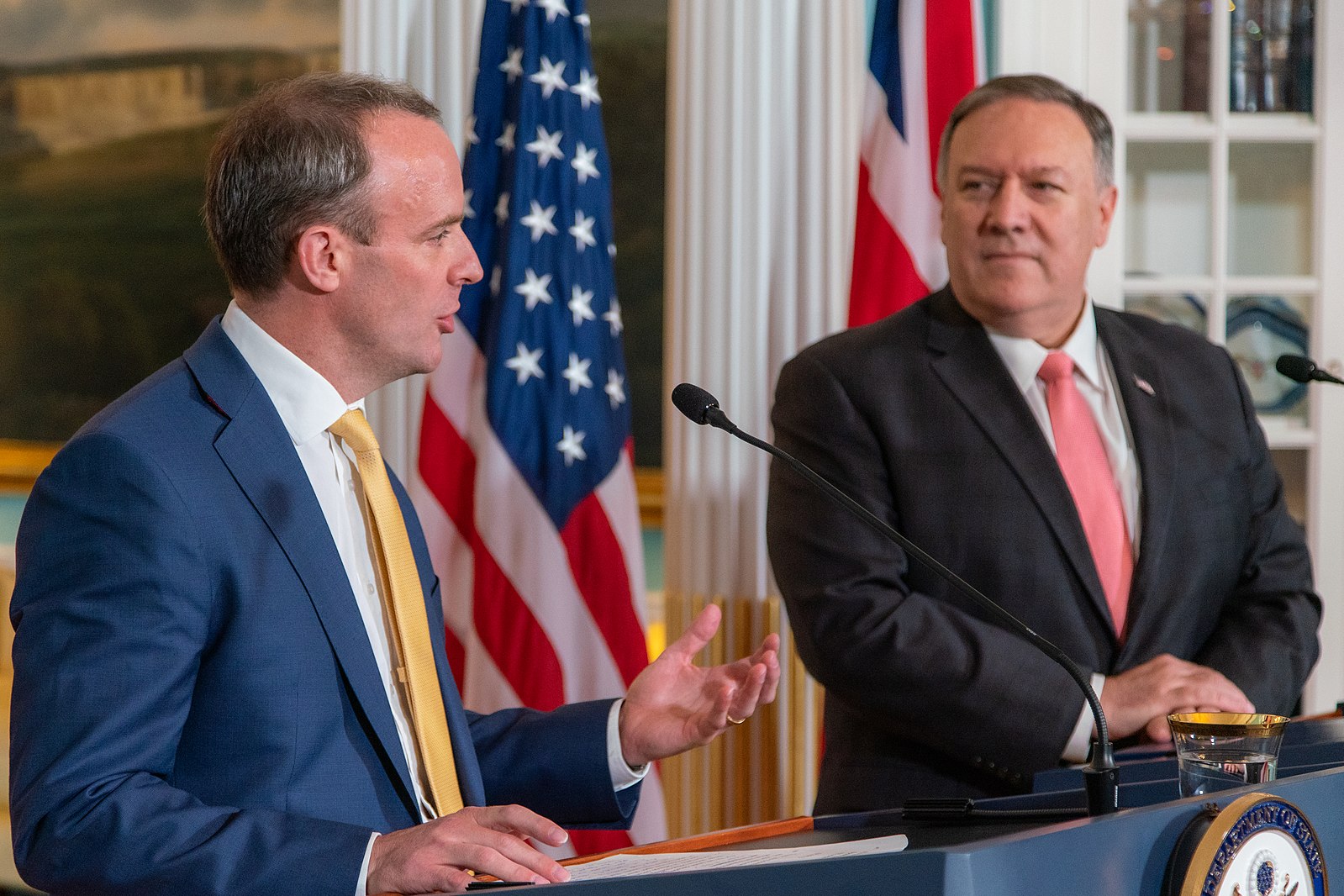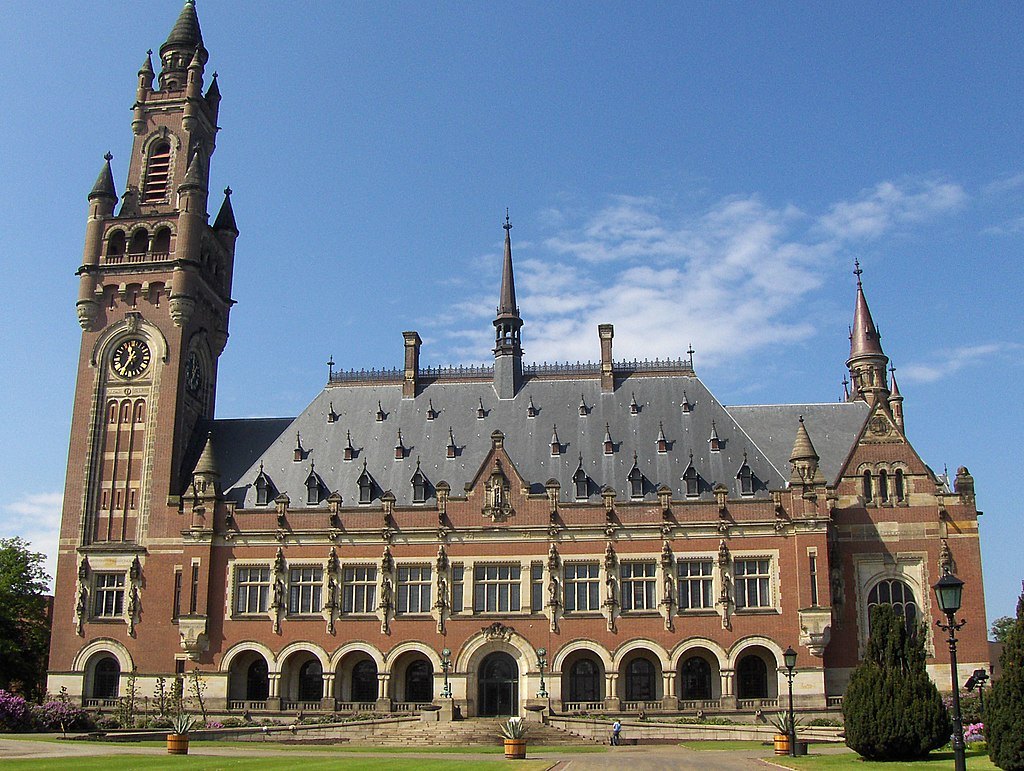What Britain’s New Sanctions Reveal About U.S.-U.K. Relations
Following Brexit, leaders from the U.S. and the U.K have said they may collaborate on human rights sanctions. However, the two countries’ recent diverging sanctions decisions suggest coordination has not yet materialized.

Published by The Lawfare Institute
in Cooperation With

On July 6, the U.K. did something that it had never done before: It unilaterally sanctioned dozens of individuals across the globe for human rights abuses. Acting pursuant to the Sanctions and Anti-Money Laundering Act 2018’s human rights provision—also known as the Magnitsky amendment (not to be confused with two U.S. laws by the same name)—the U.K. imposed assets freezes and issued travel bans against a range of bad actors, from Russian nationals involved in the death of Russian accountant Sergei Magnitsky to Saudi nationals responsible for the murder of journalist Jamal Khashoggi, to individuals and groups responsible for systemic violence in Myanmar and North Korea. While the U.K. has long been in the sanctioning business, its discretion over whom to sanction and how quickly to do so was previously limited due to its preference for coordinating sanctions policy through the European Union and often with the United Nations. But now that Britain has formally left the EU and adopted its own independent sanctions legislation, the U.K. has greater reign to sanction whom it wants.
Many foreign policy analysts have speculated about how Brexit might affect the “special relationship” between the U.S. and U.K. on matters ranging from NATO to trade. Less attention has been paid to how Brexit might affect U.S.-U.K. relations in the sanctions space. Compared with other EU member states, the U.K. has traditionally been more zealous to sanction Russia—especially after Russian agents poisoned Yulia and Sergei Skripal in the U.K. in 2018. Meanwhile, under the Trump administration, the U.S. has adopted an increasingly unilateral posture on sanctions—to the ire of some EU colleagues. So perhaps a U.K. free from EU rules—which under the European Communities Act require consensus to adopt new programs and lists concerning sanctions—would be better positioned to match, and amplify, U.S. policy.
Indeed, leaders from both countries have suggested as much. At the start of 2020, British Foreign Minister Dominic Raab said that the U.K.’s exit from the EU would facilitate closer coordination between the U.K. and the U.S. on human rights sanctions. Secretary of State Mike Pompeo has likewise indicated that Brexit could be a boon for U.S.-U.K. coordination. Shortly after the U.K. announced its July 6 designations, Pompeo applauded the decision, calling it a “new era for UK sanctions policy” and, most importantly, a new era for “cooperation between our two democracies.” But intentions be what they may, the U.K. and U.S. may not be coordinating their sanctions policies to the extent their leaders suggest. Not only have they held different actors responsible for the Khashoggi killing, but they do not appear to be coordinating on China sanctions despite shared misgivings with President Xi Jinping’s hard-handed tactics in Hong Kong and Xinjiang.
There is a considerable amount of convergence between Britain’s 49 designations on July 6 and the U.S. sanctions list. Indeed, the vast majority of individuals that Britain sanctioned pursuant to its 2018 Magnitsky Act already appear on the U.S. “specially-designated nationals” list—effectively a blacklist of persons and entities with whom any business is prohibited—and for the same reasons. For example, all 25 Russian individuals sanctioned by Britain for their involvement in the killing of Magnitsky, who died in police custody after reporting fraud by local government officials, were also sanctioned by the U.S. under the 2012 Magnitsky Act, which was specifically passed to authorize reprisals against those parties involved in his death. Likewise, the two Burmese generals sanctioned by the U.K. for violence against the Rohingya were also sanctioned by the U.S. under the 2016 Global Magnitsky Human Rights Accountability Act, which authorizes sanctions against human rights abuses anywhere in the world. As Elizabeth Rosenberg, a former special adviser to the Treasury Department’s Office of Foreign Assets Control (OFAC), told me, “The U.K. named many of the most infamous U.S. designees in order to affirm the U.S. approach and build solidarity around the practice of using sanctions to expose and target human rights abuse.”
However, discrepancies emerge when comparing whom each country designated for facilitating the October 2018 murder of Washington Post journalist Jamal Khashoggi at the Saudi consulate in Turkey. While the U.S. only designated 17 individuals for Khashogghi’s killing in November 2018, the U.K. sanctioned 20 individuals in July—adding Ahmad Hassan Mohammad Al Asiri (former deputy head of the Saudi Intelligence Services), Mufleh Al Musleh (member of the Saudi consulate in Istanbul), and Ahmed Abdullah Al Muzaini (military attaché at the Saudi consulate). While the additional inclusion of three names might seem like a relatively small difference in the grand scheme of things, the U.K.’s decision to add these three names is notable for multiple reasons.
First, the three aforementioned individuals weren’t small fish. They held important posts in the Saudi government. Most notably, Al Asiri previously served as the deputy head of the Saudi Intelligence Services and was the spokesman for the Saudi-led coalition that intervened in Yemen in 2015. He is reported to have had a close relationship with Crown Prince Mohammed bin Salman—often attending meetings with him and U.S. officials.
Second, both the U.N. and Turkey believe that Al Asiri was the ostensible mastermind behind Khashoggi’s killing, raising obvious questions about why the U.K., but not the U.S., designated him. Most damningly, the U.N. issued a report into the killing in 2019 that explicitly questioned why the U.S. had not sanctioned Al Asiri, given ongoing investigations by Turkey and Saudi Arabia at the time. The report further condemned the U.S. sanctions effort as inadequate, noting that “current [U.S.] sanctions … fail to address the central questions of chain of command and of senior leadership’s responsibilities for and associated with the execution.” Likewise, a Turkish indictment said that Al Asiri had instigated “premeditated murder with monstrous intent,” along with Saud Al Qahtani—whom, unlike Al Asiri, the U.S. and U.K. both designated. Turkey issued an arrest warrant for Al Asiri in December 2018 and separately for Al Musleh in November 2018. In March 2020, Turkey announced that it had indicted 20 Saudi nationals for Khashoggi’s murder, including Al Asiri, Al Musleh, and Al Muzaini. And this July, Turkey has begun trying all 20 men in absentia. While the Saudi government initially arrested Al Asiri, along with Al Musleh, it dismissed the charges against Al Asiri in December 2019 in what the U.N. special rapporteur for extrajudicial summary or arbitrary executions called a “mockery” of justice.
Furthermore, given that the U.S. is traditionally regarded as having one of the world’s most aggressive sanctions regimes, it’s notable that the U.K.’s Saudi sanctions went further than their U.S. counterparts in the human rights domain. While it’s perhaps plausible that the U.S. has intelligence that exonerates Al Asiri, one might reasonably assume that the U.K. would be aware of that intelligence as well, given their close coordination in the Five Eyes intelligence alliance (a multilateral intelligence alliance comprising Australia, Canada, New Zealand, the U.K. and the U.S.) Furthermore, to the extent that the U.S. has a strategic rationale for not sanctioning Al Asiri given his connections to the Saudi government, it’s not clear why the U.S. didn’t convince the U.K. to mirror its policy. After all, it took Canada only a few short weeks to sanction the same 17 individuals that the U.S. sanctioned in relation to the Khashoggi killing, pursuant to its own version of the Magnitsky Act.
Events following last week’s U.K. sanctions further suggest that U.S.-U.K. sanctions coordination hasn’t fully materialized. Three days after the U.K. revealed its new human rights sanctions on July 9, the U.S. designated one Chinese government entity and four officials in connection with human rights abuses in Xinjiang. Given that the British government has also been critical of human rights abuses in Xinjiang, one might have hoped that the U.K. and U.S. would have coordinated their sanctions policy to send Beijing a stronger rebuke under their respective Magnitsky regimes. After all, the U.K. and U.S. share similar objectives in China—unlike in Iran, where the U.K. has been highly critical of the U.S.’s heavy-handed use of sanctions pursuant to its “maximum pressure campaign.” Unfortunately, no such coordination transpired. Furthermore, both countries appear to be acting on independent axes with respect to Hong Kong, where Beijing has recently imposed a restrictive national security law undermining Hong Kong’s autonomy. Though both countries have condemned Beijing’s actions, they have adopted remedial measures independently of one another, thus forfeiting an important opportunity for collective action. As former Treasury Department official and current Director of Illicit Finance at The Sentry Hilary Mossberg told me, “A clear messaging strategy is imperative to an effective sanctions program. The divergence between the US and UK sanctions targets is confusing, and there is no apparent coordination on messaging between the two governments. This is a missed opportunity that otherwise could have improved the effectiveness of multilateral human rights sanctions.” While it’s certainly possible that the U.K. and U.S. may ultimately issue sanctions on human rights abusers in Hong Kong, such an approach would likely be largely reactive, rather than “coordinated.”
In an email, OFAC officials affirmed that the U.K.’s new Global Human Rights Sanctions regime “will complement existing efforts by the U.S. and Canada,” but they did not provide any specific insights into how U.S.-U.K. sanctions coordination has changed in the wake of Brexit. Likewise, no British human rights lawyers I spoke with had heard of any special channel between the U.K. and U.S., suggesting none yet exists. While the U.K.’s recently published guidance document on Magnitsky sanctions explicitly notes that the availability of “collective action” will be a key consideration in deciding whether to issue human rights sanctions, it says nothing about how the U.K. will seek to influence or shape what collective action entails.





